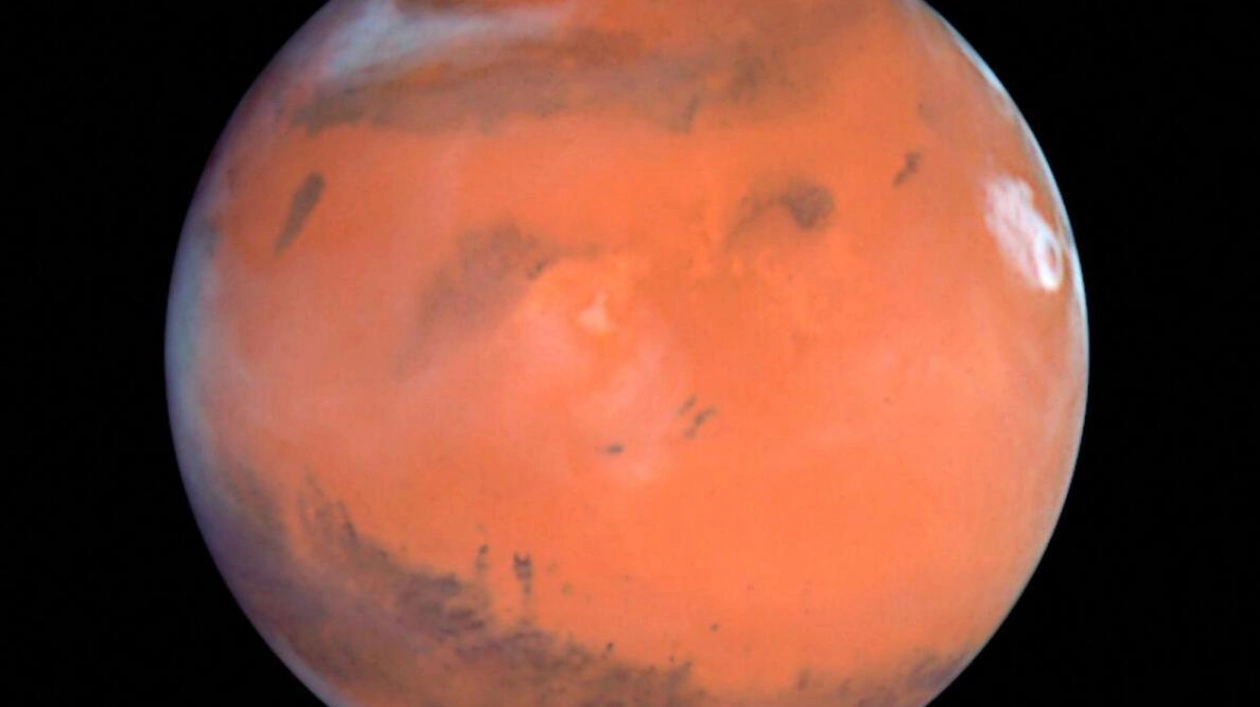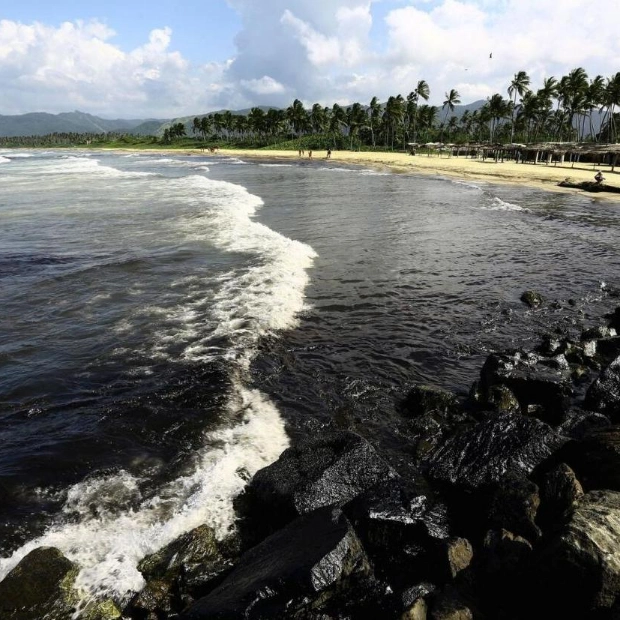This Hubble telescope image captures Mars when it was 87 million kilometers from Earth. — Reuters File
A Chinese rover has uncovered fresh evidence supporting the idea that Mars once hosted a vast ocean, tracing ancient coastlines where water might have once flowed, according to a study published on Thursday. The notion that an ocean covered up to a third of the Red Planet billions of years ago has been a subject of scientific debate for decades, with some researchers expressing skepticism about the latest findings.
In 2021, China's Zhurong rover touched down on a plain in the Martian northern hemisphere's Utopia Planitia, an area previously identified as having signs of ancient water. Since then, the rover has been exploring the Martian surface, and new findings from its mission were detailed in a study in the journal Nature.
Lead study author Bo Wu of The Hong Kong Polytechnic University told AFP that various features indicative of a past ocean were identified around Zhurong's landing site, including 'pitted cones, polygonal troughs, and etched flows'. Previous studies have suggested that these crater-like pitted cones could be the result of mud volcanoes, typically forming in regions with water or ice.
Data from the rover, along with satellite observations and Earth-based analysis, also indicated the presence of a shoreline near the area, according to the study. The researchers estimated that the ocean formed about 3.7 billion years ago through flooding, froze, and then disappeared around 3.4 billion years ago.
Bo emphasized that the team does 'not claim that our findings definitively prove that there was an ocean on Mars'. Such certainty would likely require a mission to return Martian rocks to Earth for closer examination. Benjamin Cardenas, a scientist who has analyzed other evidence of a Martian ocean, expressed skepticism about the new study, noting that the researchers may not have fully accounted for the effects of Martian winds on sediment and rock erosion over billions of years.
Cardenas pointed out that Mars is more geologically active than commonly thought, and past modeling suggests that even slow erosion rates could erase shoreline evidence over such a long period. Bo acknowledged the potential impact of wind erosion but noted that meteor impacts can also expose underground rock and sediment.
While the overall theory remains controversial, Cardenas tends to believe there was an ocean on Mars. Discovering the truth could help solve a broader mystery: whether Earth is the only planet in the Solar System capable of supporting life. Evidence of an ocean makes Mars appear more hospitable, potentially indicating conditions suitable for life.
Source link: https://www.khaleejtimes.com






